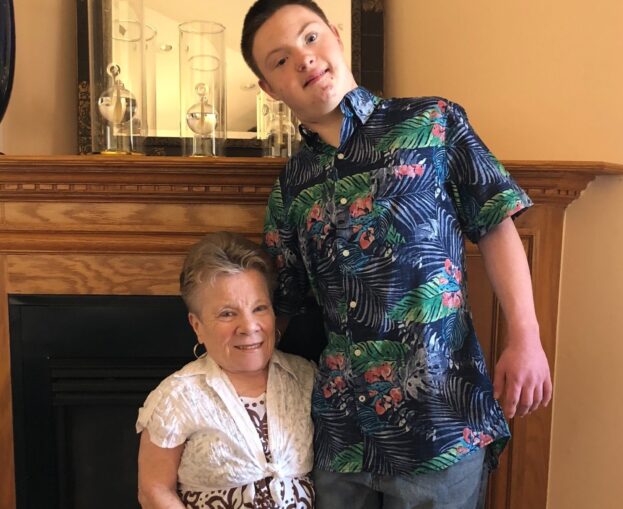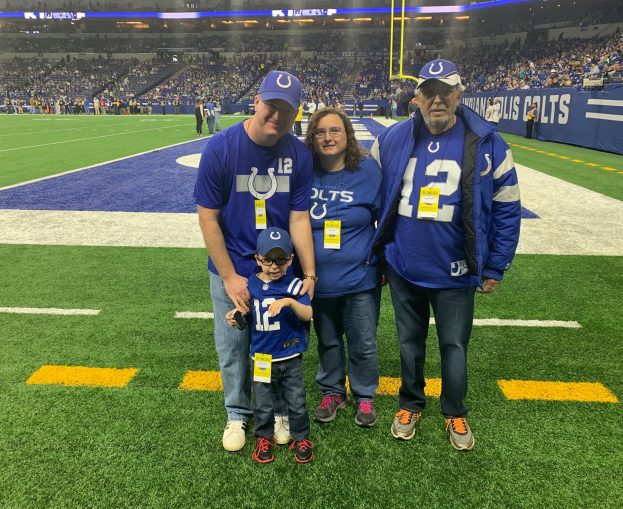High Impact, Low Pay, Ongoing Frustration
It’s one of the great frustrations of our industry: some of the people who have the greatest impact on our society – supporting children and adults with intellectual and developmental disabilities – receive the lowest pay.
It’s true. A person working in what is known as a direct-care position – someone who, as the title would suggest, provides direct care to the children and adults we serve – typically makes such a low wage that it’s not uncommon for us to lose employees to low-skill, physical-labor jobs.
Then why, you might ask, don’t we give them raises? Because it’s pretty much out of our hands. But more on that in a minute.
First, let’s get the lay of the land. At Damar, we currently have 965 employment positions. The majority of these positions provide direct care to clients. These include people in virtually every area of our programs, from residential care to ABA Autism Services by Damar, and from our two schools to our group homes. In many ways, these people are Damar to our clients, and they have the greatest opportunity, day in and day out, to help our clients grow and live remarkable lives.
For these positions, our average starting salary is $11.50 to $12, depending on the program. That’s not a terrible wage – it’s higher than the state’s minimum wage – but it’s also not a competitive wage. Just up the road from Damar’s campus, Plainfield-area employers such as FedEx, Amazon, Dick’s Sporting Goods and UPS are paying starting salaries of $15 an hour.
So, again, why don’t we give raises? Because the way we are paid for our services doesn’t allow it. The vast majority of our work is done through contracts with government agencies, and those agencies dictate how much they pay, basing their reimbursements to us in part on what they deem to be an appropriate wage for direct-care staff. And as a nonprofit that operates on a slim margin, we don’t have the leeway to make up the difference from other areas of our budget.
We have fought this battle for years. We routinely lobby our funding agencies for increased payments, and we did recently get the Indiana Family and Social Services Administration to increase their payments enough to allow for a 5% an-hour pay increase. But that still leaves us struggling to attract direct-care staff, and it makes it difficult to retain the staff we have.
Retaining staff is a key concern. Our annual retention rate for direct care workers hovers right around 55 percent – which means we have a lot of people moving in and out of the organization. And the cost to hire and train new staff is becoming increasingly burdensome. This would be a challenge for any organization, but for us it’s especially challenging because consistency is important for the people we serve. They tend to do best if they have a familiar group of people with whom they work. So staff turnover not only puts a stress on the organization, it also affects our clients.
Some people are so dedicated to providing care to children and adults with intellectual and developmental disabilities that they won’t go up the road for a few dollars an hour. They love what they do and they sacrifice to do it. We appreciate these folks, but we recognize that, as the gap between what they make and what they could make widens, they have to do what’s best for their families.
Damar isn’t alone in this challenge. As I talk with my peers at other agencies, they tell of the same struggle: It’s hard to attract workers when you can’t compete with the pay they can get somewhere else, no matter how powerful your mission might be.
At Damar, we constantly strive to find new ways to address this challenge. We pursue philanthropic gifts, look for innovative staffing solutions and more. Still, we know we can’t make an appreciable impact on this problem under the current reimbursement system. Something needs to change with the way we are paid, and that something needs to come from the government agencies with which we work. Or the children and adults we serve will suffer. After all, if we can’t find quality direct care staff, we can’t provide quality care.
You can help us by contacting your local and state representatives and legislators and telling them about these concerns. Invite them to join you in a visit to Damar to discuss these issues and see directly for themselves the important work that is being done for citizens and families in Indiana. This work is as important as the other infrastructure investments that the state makes. Investing in professionals who provide life changing services is worthy of the state’s consideration. We are lucky to live in a state that has a significant budget surplus every year. A small fraction of that surplus devoted to this important work would go a long way in changing lives for the better and ensuring the future of some of Indiana’s most vulnerable citizens.





